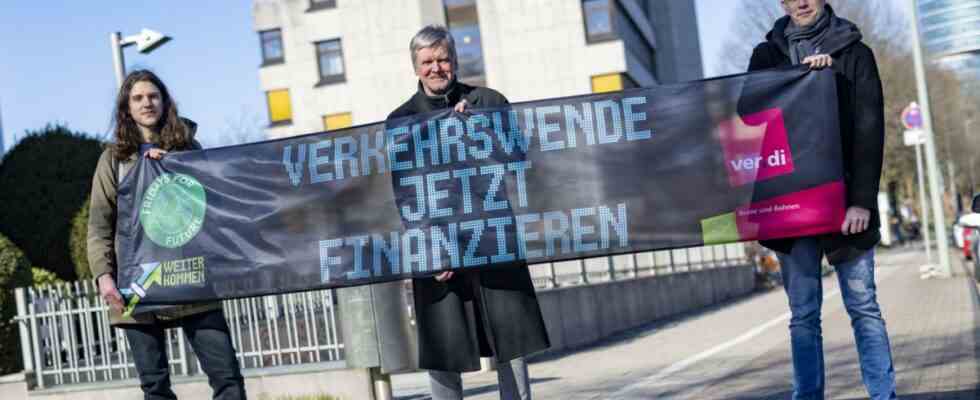The turnaround in traffic is lagging far behind the climate targets and is currently the biggest concern when it comes to the question of how greenhouse gas emissions can be reduced overall in Germany. A fifth of all emissions come from this sector. Transport Minister Volker Wissing, however, seems relatively unconcerned. Just a few days ago, he again began to doubt the EU’s decision to phase out combustion engines – to the annoyance of Environment Minister Steffi Lemke.
At first glance, the fact that the climate protesters from Fridays for Future and the Verdi union have joined forces for today’s strikes and protests may seem like a slightly confusing liaison. In this text, my colleagues Thomas Hummel and Benedikt Peters also ask whether the Fridays are trying to reinvent themselves.
On the other hand: Without a comprehensive traffic turnaround, a goal-oriented climate policy will not be possible and an important part of this turnaround must be the upgrading of local public transport. The unification no longer seems so surprising. If you need more buses, you need enough bus drivers. In order for this to remain an attractive job, wages have to rise in local transport, so the argument goes.
My colleague Nikolaus Piper sees things differently. He finds that the goals of the Fridays and Verdi actually contradict each other, also because higher wages lead to rising ticket prices and could thus counteract the turnaround in transport. The fact that many people have to drive to work on the day of the strike because of climate union protests instead of using public transport also does little to help the climate. Some people might even feel fooled by it.
There is no doubt that there is a type of head-shaking car driver who feels disturbed by protesters of all kinds. At the same time, the astonishment at the solidarity of the protest parties shows how little the change towards a largely climate-neutral way of life is still seen by many people. Because a trade union like Verdi and the climate movement have more in common than the goal of a functioning local transport system.
What holds both protest parties together is the idea of prioritizing social justice. As a trade union on behalf of employees. And as a climate movement, as Fridays for Future explain again and again, because the progressive climate change will continue to widen the gap between poor and rich people not only globally but also in Germany and because the main culprits are not the poorer but the rich people.
“The fairy tale of the contradiction between social justice and climate justice benefits few and harms many,” said Germany’s most prominent representative of the climate movement, Luisa Neubauer, a few months ago Mirror. The joint protests today underline this course. It remains to be seen whether he will be successful.
(This text is from the weekly Newsletter climate friday you here for free can order.)

